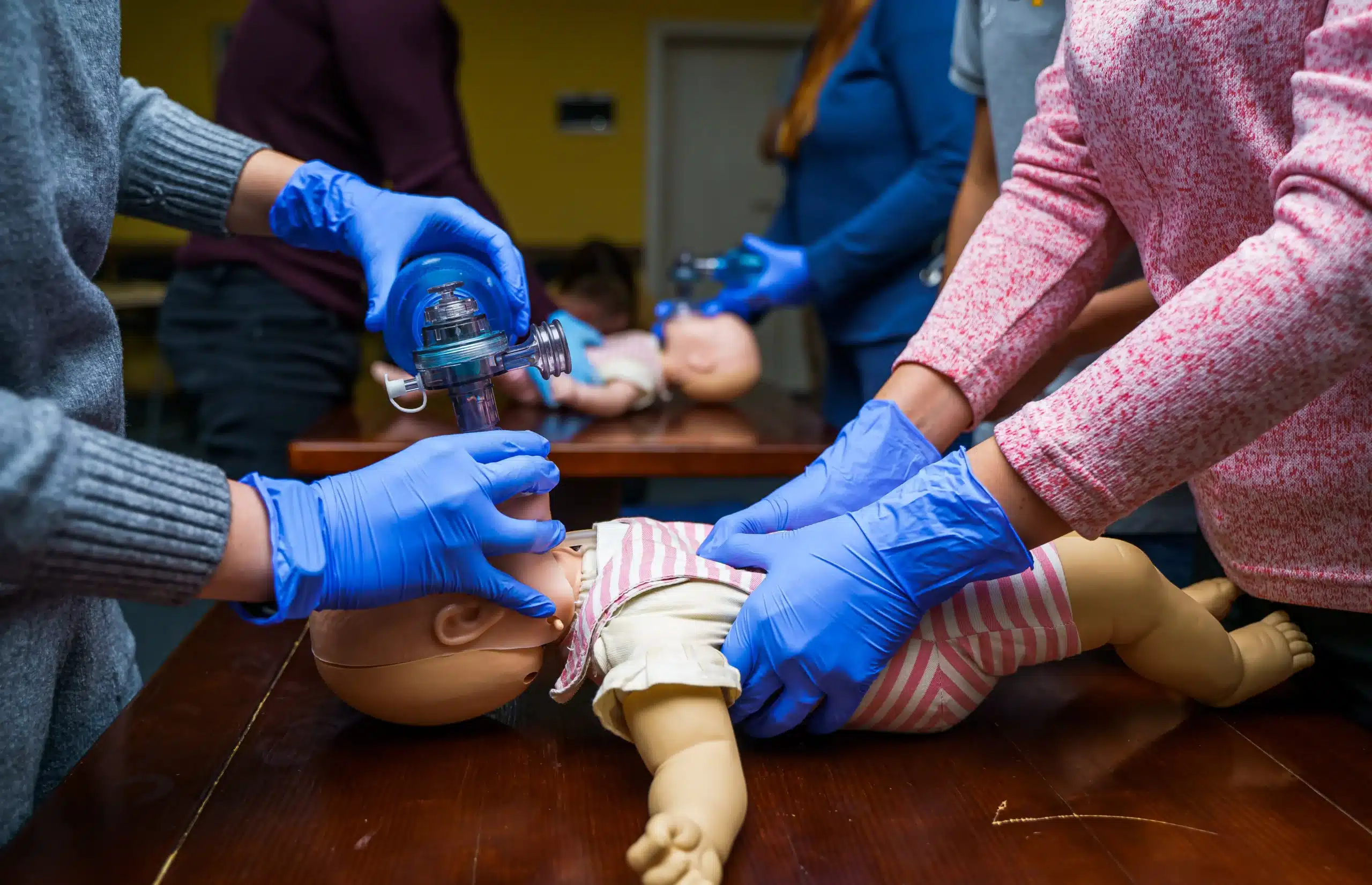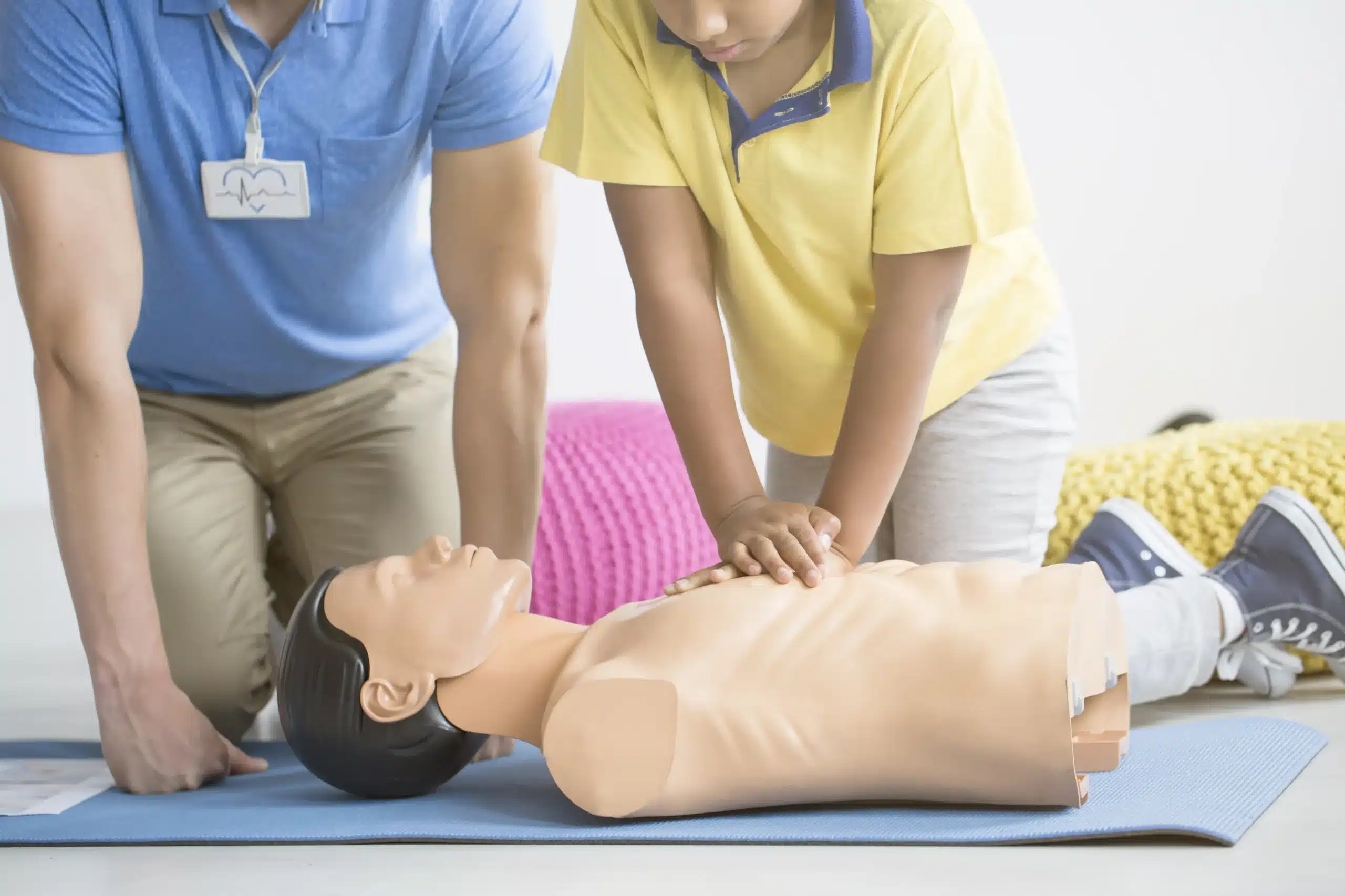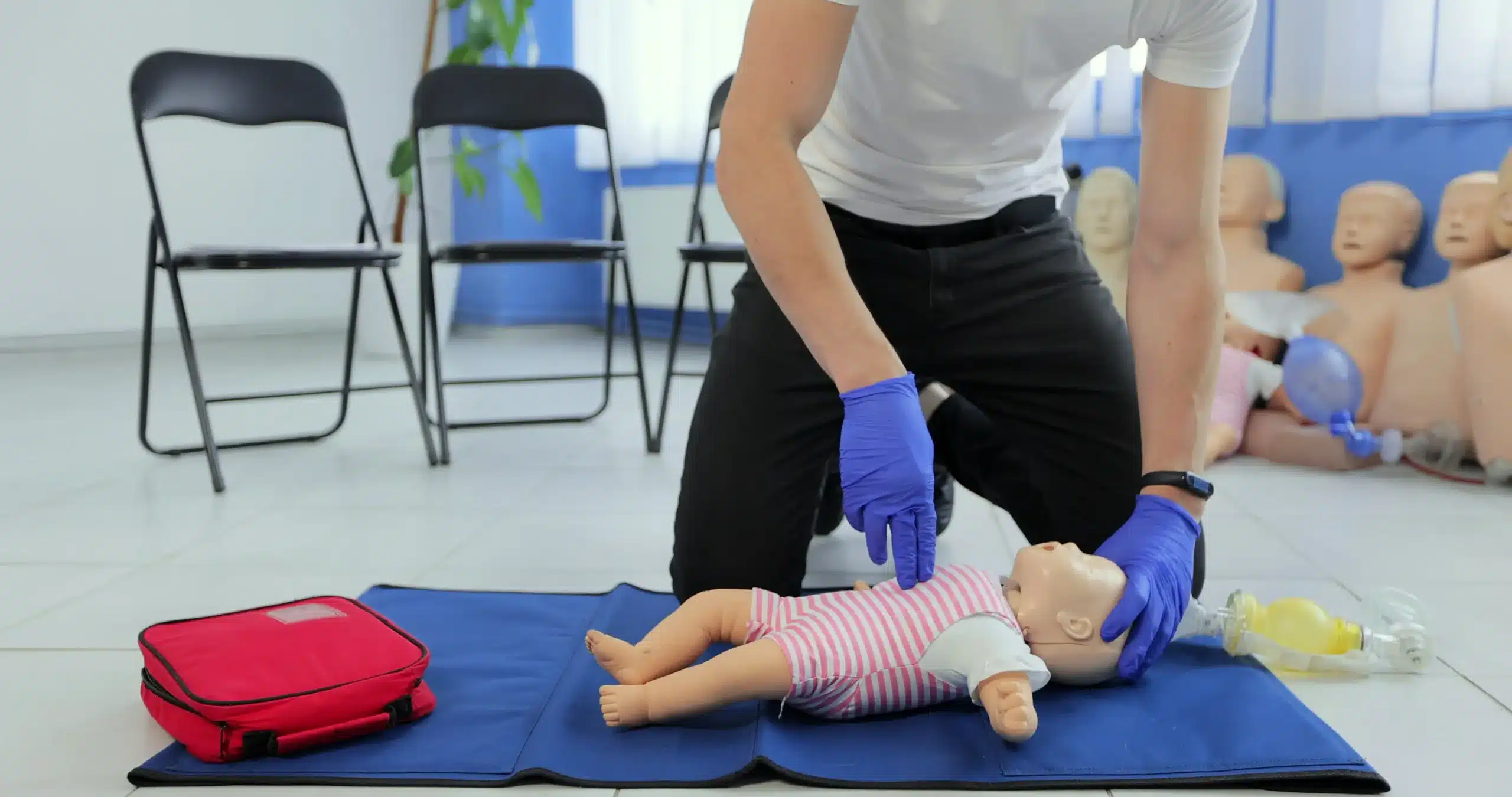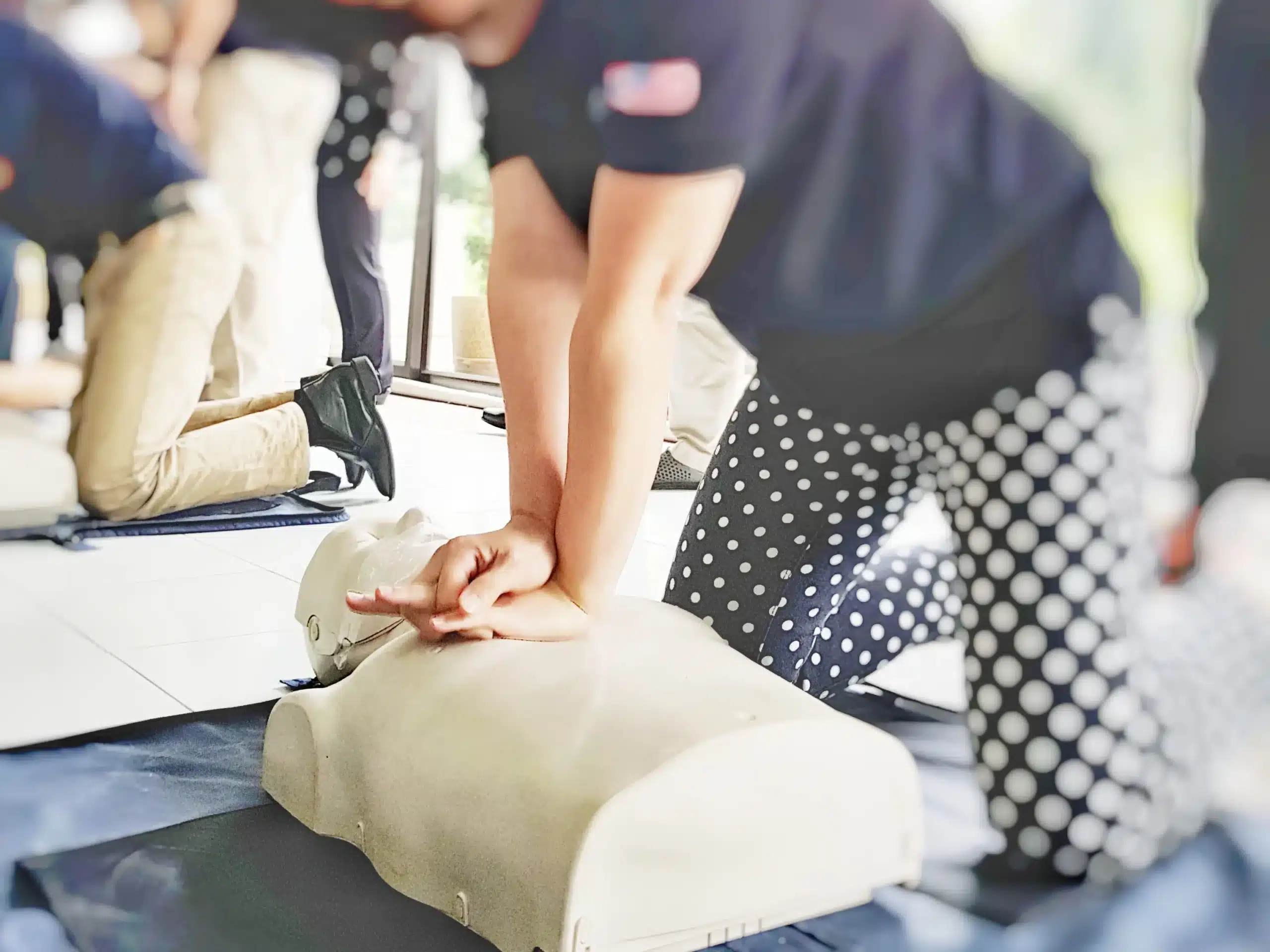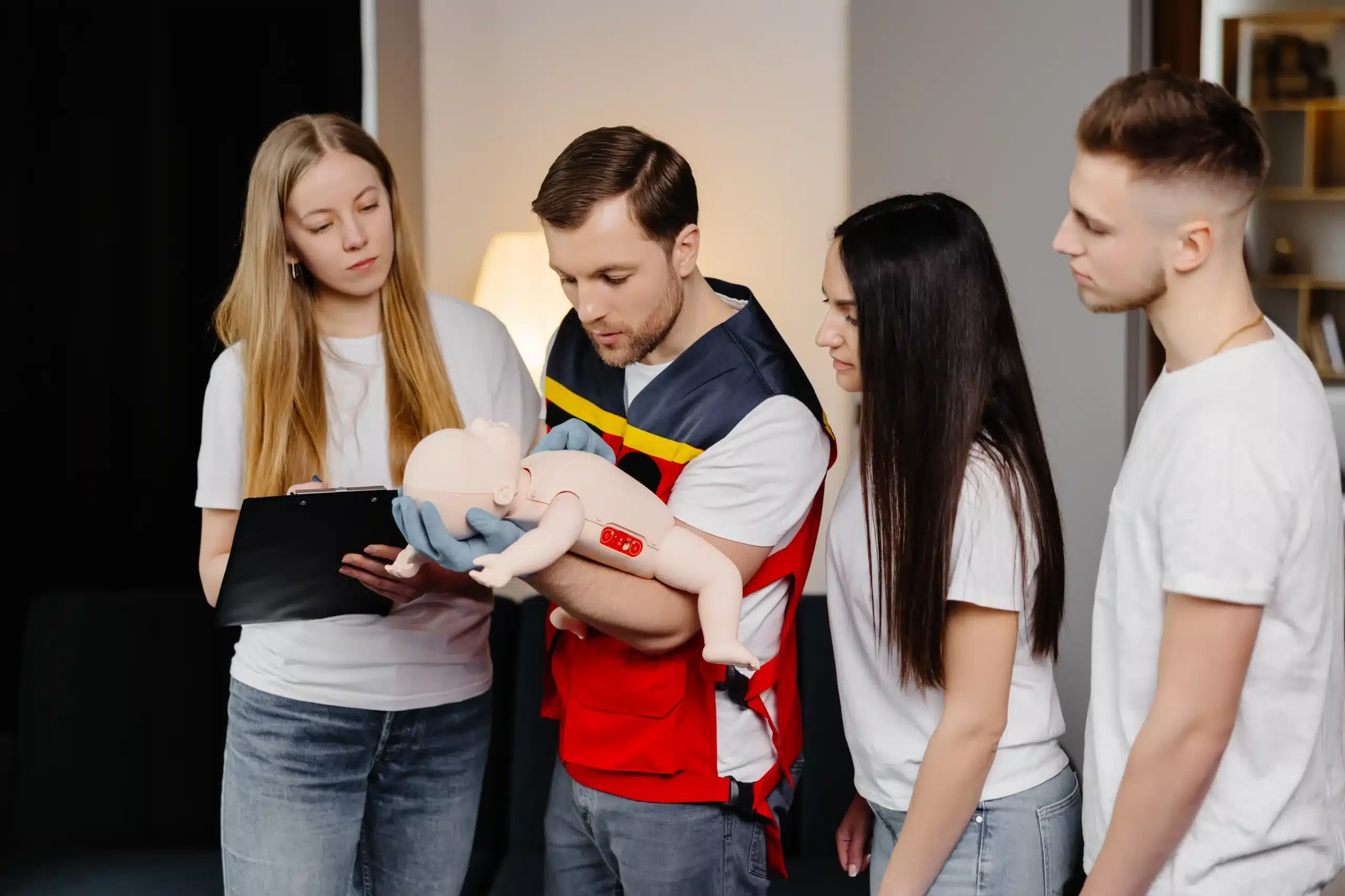Working in healthcare, especially with children, means being ready for anything. From everyday bumps and bruises to more serious situations, having the right skills can make all the difference. That’s where Pediatric Advanced Life Support (PALS) training comes in. This specialized certification equips healthcare professionals with the advanced knowledge and practical skills to handle pediatric emergencies effectively. If you’re a healthcare provider in Hayward, Union City, or San Leandro, understanding the importance of PALS and where to find quality training is essential. This guide breaks down everything you need to know about PALS certification in Hayward, from course formats and costs to instructor qualifications and the impact of PALS on the local healthcare community.
Key Takeaways
- PALS equips you with essential skills: It goes beyond basic life support, giving healthcare providers the training to manage pediatric emergencies confidently. Choose a course format that suits your learning style and schedule.
- Select a PALS provider carefully: AHA accreditation, instructor experience, and comprehensive content are key factors to consider. Reviews from other healthcare professionals can offer helpful insights.
- Stay current with PALS guidelines: Renew your certification every two years and pursue continuing education opportunities to maintain your skills and knowledge. This ongoing commitment benefits both your patients and your career.
What is PALS?
Pediatric Advanced Life Support (PALS) is a specialized training program designed to equip healthcare professionals with the skills to respond effectively to pediatric emergencies. These emergencies can range from respiratory distress and shock to cardiac arrest, impacting infants and children who are critically ill or require immediate medical support. The goal of PALS is to improve the quality of care provided to seriously ill or injured infants and children, resulting in improved outcomes.
What does PALS entail?
PALS certification goes beyond basic life support (BLS) training. It provides healthcare providers with the advanced, practical skills needed to manage pediatric emergencies. This includes a deep dive into recognizing and assessing life-threatening conditions, understanding the appropriate interventions, and mastering the techniques required to stabilize and resuscitate young patients. PALS emphasizes a systematic approach to pediatric assessment, rapid intervention, and effective team dynamics. For those needing BLS certification, Hayward CPR Classes offers comprehensive BLS training.
Who needs PALS Certification?
PALS certification is essential for any healthcare professional directly involved in the assessment and management of critically ill infants and children. This includes individuals working in a variety of settings, such as hospitals, pre-hospital environments (like ambulances), and out-of-hospital medical facilities. Doctors, nurses, paramedics, respiratory therapists, and emergency medical technicians are among the professionals who benefit from PALS training. If your career involves caring for young patients in critical situations, PALS certification from Hayward CPR Classes is a valuable asset.
PALS Certification in Hayward
Finding the right Pediatric Advanced Life Support (PALS) certification course can be tricky. This section breaks down some of your options for PALS training in and around Hayward.
Hayward CPR Classes
Hayward CPR Classes offers a range of American Heart Association (AHA) certification courses, including PALS. They focus on providing convenient and affordable training, with a lowest-price guarantee in Alameda County. You can find more information on their BLS, ACLS, and PALS courses along with other certifications. They also offer discounts for group CPR classes.
Emergency & Health Training Center
The Emergency & Health Training Center in Hayward offers the AHA PALS course in a blended learning format. This allows you to complete the online portion at your own pace, followed by an in-person skills session. This approach offers flexibility for those with busy schedules. More information on PALS courses in Hayward can be found on their blog.
Safety Training Seminars
Safety Training Seminars provides PALS certification courses that adhere to AHA standards. They offer various AHA courses, including BLS, ACLS, PALS, CPR, and First Aid, all in Hayward. Check out their website for more information on their course offerings.
American Red Cross
While the American Red Cross isn’t specifically located in Hayward, they are a well-known provider of PALS certification. Their courses are designed for healthcare providers involved in assessing and managing critically ill patients, working in various medical settings. It’s worth exploring their website to see if their course offerings and locations work for you.
Course Formats & Duration
Finding the right PALS course format is key to successfully completing your training. Whether you thrive in a traditional classroom, prefer the flexibility of online learning, or appreciate a blend of both, there’s a PALS course in Hayward to suit your needs. Let’s explore the different options:
In-Person Classes
In-person PALS courses provide a structured learning environment with direct interaction with your instructor. These classes are ideal for those who value hands-on training and appreciate real-time feedback. The Emergency & Health Training Center in Hayward offers in-person PALS certification designed for healthcare providers who manage pediatric emergencies. This format allows for immediate clarification and fosters a collaborative learning experience.
Blended Learning
Blended learning combines online convenience with the benefits of in-person skills practice. This hybrid approach typically involves completing the AHA HeartCode PALS online portion first, which usually takes between four and six hours. After finishing the online component, you’ll attend an in-person skills session to practice and demonstrate your techniques. This format offers flexibility while still ensuring you receive the hands-on training necessary for effective PALS application.
Online Options
For those with busy schedules or limited access to in-person training, fully online PALS courses offer a convenient alternative. These courses allow you to complete the theoretical training at your own pace. A helpful list of online and hybrid PALS classes is available for the Hayward area to help you choose the best fit for your learning style and circumstances. While online options offer maximum flexibility, ensure the course you choose meets the AHA’s standards and includes a hands-on skills assessment.
What to Expect in a PALS Course
PALS courses equip healthcare providers with the knowledge and skills to manage pediatric emergencies. Here’s a glimpse of what you can expect:
Key Topics
PALS certification courses cover essential topics, including team dynamics, algorithms, and best practices for pediatric patients in life-threatening situations. You’ll learn to assess a child’s condition quickly, make critical decisions under pressure, and provide appropriate interventions. The curriculum emphasizes a systematic approach to pediatric assessment, resuscitation, and stabilization. You’ll also learn about specific emergencies like respiratory distress, shock, and cardiac arrest. Understanding these critical areas will give you the confidence to manage pediatric emergencies effectively.
Hands-on Training
PALS classes aren’t just lectures and textbooks. They emphasize hands-on training to develop practical skills and build confidence. Expect simulations and real-life scenarios that challenge you to apply your knowledge in realistic emergency situations. You’ll practice essential techniques like airway management, intravenous access, and medication administration. This practical experience translates classroom learning into real-world competence. Many providers offer a blended learning format, allowing you to complete the online portion of the HeartCode PALS course at your own pace before attending an in-person skills session.
Assessment & Certification
Your PALS course will include written and practical assessments to evaluate your understanding and ability to perform essential skills. You’ll demonstrate proficiency in key areas like patient assessment, treatment algorithms, and team communication. Upon successful completion of the online and in-person components, you’ll receive your PALS certification, valid for two years. Many training centers, like Hayward CPR Classes, issue your official AHA PALS card the same day you complete your skills check.
PALS Certification Costs
Pricing Factors
Getting your Pediatric Advanced Life Support (PALS) certification is a smart move for any healthcare provider dealing with pediatric emergencies. This certification is good for two years, keeping professionals up-to-date on the latest life-saving practices. The cost of PALS certification varies based on several factors, including the course format (in-person, blended learning, or online), the training center, and any included materials like textbooks. Location can also influence pricing, so compare prices in your area. For example, PALS certification in Hayward might have different pricing than a larger city. It’s always a good idea to contact the training center directly to get the most current pricing information.
Provider Cost Comparison
It’s smart to compare costs between providers. The American Heart Association (AHA) offers an online PALS course for $230, including the digital textbook. If you prefer blended learning, the HeartCode PALS online portion costs $168, with an additional $150 for the required hands-on skills session. This lets you learn online at your own pace and then practice your skills in person. Remember that prices can change, so always double-check with the provider.
Discounts & Offers
Before committing to a PALS course, see if any discounts are available. Many training centers offer lower prices for group registrations. Some providers offer a 25% discount for groups of two to five people. Hayward CPR Classes is known for its competitive pricing and often has special offers, so check their website or contact them. A little research can save you money while gaining these essential skills. You can also inquire about discounts for students, military personnel, or other groups.
Instructor Qualifications
Choosing the right PALS course is a big decision, and your instructor plays a huge role in how much you learn. It’s worth looking into their qualifications and experience to make sure you’re getting top-notch training.
Experience & Background
Experienced PALS instructors bring a lot to the table. They often share real-world insights and practical tips that go beyond the textbook, making the material more engaging and memorable. A solid understanding of pediatric advanced life support comes not just from certifications, but also from hands-on experience. Look for instructors with a strong background in pediatric emergency care. When choosing a PALS course provider, consider factors like accreditation, course content, instructor qualifications, and student support, as highlighted in this guide on PALS courses.
AHA Certification
The American Heart Association (AHA) sets the gold standard for PALS certification. Making sure your instructor is AHA-certified means they’ve met rigorous training requirements and are up-to-date on the latest guidelines for pediatric advanced life support. This is key for providing high-quality training that reflects current best practices. The Emergency & Health Training Center in Hayward offers an AHA-certified blended learning course, combining online learning with in-person skills sessions. This blended learning approach offers flexibility while ensuring you receive the practical training necessary for certification. As noted in this PALS certification guide, adhering to AHA standards is essential for maintaining high educational standards.
Choosing a PALS Provider in Hayward
Finding the right PALS provider is key to a positive and effective learning experience. With several options in Hayward, knowing what to look for is essential. This section breaks down the factors to consider when making your decision.
Factors to Consider
Accreditation: Confirm the provider’s American Heart Association (AHA) accreditation. This ensures the course meets the AHA’s rigorous standards and guidelines for PALS training, giving you a recognized and respected certification. Hayward CPR Classes is a woman-owned AHA Training Center, offering courses that adhere to these standards.
Course Content: A comprehensive curriculum is crucial. Review the course content to ensure it covers everything from basic life support to advanced airway management, equipping you to handle various pediatric emergencies. Explore our course details to see what we cover in our PALS classes.
Instructor Qualifications: Experienced instructors are essential. Look for a provider whose instructors have a strong background in pediatric emergency care. Their expertise will enrich your learning. Contact us to learn more about our instructors’ qualifications.
Student Support: A supportive learning environment is invaluable. Consider the resources available, such as practice materials and instructor access. A provider that prioritizes student support helps you feel confident throughout your training. We offer various resources and support, including group discounts.
Testimonials & Reviews
Real feedback from past participants offers invaluable insights. Take the time to read testimonials and reviews.
Course Effectiveness: Look for comments on how well the course prepared participants for real-world scenarios. Did they feel confident applying their skills? This feedback helps you gauge the training’s effectiveness.
Instructor Quality: Reviews often highlight instructors’ teaching styles and ability to communicate clearly. An engaging and knowledgeable instructor significantly impacts your learning.
Overall Experience: Pay attention to comments about the learning environment, materials, and ease of scheduling. A positive experience contributes to your overall success. Explore our website and see what other students say about their experiences with RQI classes and other courses.
Maintaining PALS Certification
Your PALS certification journey doesn’t end after you pass the initial exam. Staying current with the latest advancements in pediatric care is crucial for providing the best possible care. This involves understanding both the renewal process and the importance of continuing education.
Renewal Process
PALS certification is valid for two years. To maintain your credentials and ensure you’re practicing with the most recent guidelines from the American Heart Association, you’ll need to renew your certification before it expires. The renewal process typically involves taking a PALS renewal course, often covering updated protocols, best practices, and any changes to pediatric advanced life support techniques. You can find PALS renewal courses offered by various providers, including Hayward CPR Classes. Check with your certifying organization or employer for specific renewal requirements. Many providers offer a combination of online and in-person components for flexibility. You can find more information on PALS recertification in our PALS Certification in San Leandro guide.
Continuing Education
Beyond the formal renewal process, continuing education plays a vital role in maintaining your PALS skills. The field of pediatric care is constantly evolving, with new research and advancements emerging regularly. Engaging in continuing education activities, such as workshops, online modules, and conferences, helps you stay informed about these changes and refine your skills. These opportunities allow you to explore specific topics in greater depth, practice advanced techniques, and learn from experienced professionals. By actively pursuing continuing education, you demonstrate a commitment to providing high-quality care and staying at the forefront of pediatric advanced life support. This dedication benefits your patients and enhances your professional development and career prospects.
PALS Impact in Hayward
PALS certification significantly impacts Hayward’s healthcare landscape, improving pediatric care and offering career advancement opportunities. Let’s explore these benefits.
Improving Pediatric Care
Pediatric Advanced Life Support (PALS) certification is essential for healthcare providers in Hayward working with children. It equips them with the skills to recognize and respond to life-threatening emergencies. PALS training goes beyond basic life support, providing advanced skills to manage critical situations like respiratory distress, shock, and cardiac arrest. This specialized training enhances the quality of pediatric care, contributing to better outcomes for young patients in Hayward, Union City, and San Leandro. For a comprehensive understanding of PALS, check out our PALS Certification guide. Having a PALS certification can make a real difference in a child’s life.
Career Advancement
Beyond improving patient care, PALS certification is a valuable asset for career advancement. It’s a sought-after qualification that demonstrates a commitment to high-quality pediatric care. Earning your PALS certification can open doors to more specialized roles and greater responsibilities. Whether you’re a medical student, nurse, or other healthcare professional, PALS certification can significantly enhance your career prospects. Learn more about the career benefits of PALS and some of the challenges here. If you’re in Hayward, Union City, or San Leandro, contact us to learn more about our PALS courses.
Overcoming PALS Challenges
Let’s be honest, adding another certification to your to-do list can feel overwhelming. PALS training is no different, but with a little planning, you can overcome the hurdles and gain a valuable skill set. Here’s how to tackle some common challenges:
Time Management
One of the biggest challenges healthcare providers face is balancing demanding work schedules with the time commitment required for training. Finding a PALS provider that offers flexible scheduling is key. Look for courses offered on weekends, evenings, or in condensed formats to fit your busy life. Hayward CPR classes offers flexible scheduling to accommodate busy professionals. Contact us to find a course that works for you. Consider breaking up your study time into smaller, manageable chunks. Even short, focused study sessions can be more effective than trying to cram everything in at once.
Mastering the Material
The PALS course covers a lot of ground, from team dynamics and algorithms to best practices for pediatric emergencies. Don’t let the volume of information intimidate you. Start by reviewing the core PALS materials and focusing on key concepts. Use practice tests and quizzes to gauge your understanding and identify areas where you need to focus your study efforts. Hands-on training and simulations are invaluable for solidifying your knowledge and building confidence. Consider taking advantage of group discounts offered by Hayward CPR Classes.
Practical Application
Bridging the gap between textbook knowledge and real-world application is crucial for any healthcare provider. PALS courses often emphasize simulations and real-life scenarios to help you develop the confidence to apply your skills in actual emergencies. Actively participate in these scenarios, ask questions, and embrace the opportunity to practice your skills in a safe learning environment. Consider joining a study group with colleagues to discuss challenging cases and share experiences. This collaborative approach can enhance your understanding and prepare you for the real-world demands of pediatric advanced life support. Contact us to learn more about our hands-on training approach.
Related Articles
- PALS Certification in Union City: Your Guide to Courses & Providers – Hayward CPR Classes
- PALS Certification in San Leandro: Your Complete Guide – Hayward CPR Classes
- Online PALS Classes in Union City: Your Guide – Hayward CPR Classes
- AHA PALS Classes in Hayward, CA – Hayward CPR Classes
- BLS ACLS PALS Training in Hayward: A Complete Guide – Hayward CPR Classes
Frequently Asked Questions
Why is PALS certification important? PALS certification equips healthcare providers with advanced skills to manage pediatric emergencies, leading to improved outcomes for critically ill or injured infants and children. It builds upon basic life support (BLS) training, providing a systematic approach to assessment, intervention, and resuscitation.
What career paths benefit from a PALS certification? Any healthcare professional involved in the care of critically ill infants and children benefits from PALS certification. This includes doctors, nurses, paramedics, respiratory therapists, emergency medical technicians, and others working in hospitals, pre-hospital settings, and out-of-hospital medical facilities. PALS certification demonstrates a commitment to high-quality pediatric care, enhancing career prospects.
How do I choose the right PALS course format for me? Consider your learning style and schedule. In-person classes offer structured learning and direct interaction with instructors. Blended learning combines online coursework with in-person skills sessions, providing flexibility. Online courses offer maximum flexibility for self-paced learning. Ensure any online course includes a hands-on skills assessment component.
What can I expect during a PALS course? Expect a comprehensive curriculum covering essential topics like team dynamics, algorithms, and best practices for pediatric emergencies. PALS courses emphasize hands-on training through simulations and real-life scenarios, allowing you to practice essential skills like airway management and medication administration. Assessment typically includes written and practical exams.
How do I maintain my PALS certification after completing the course? PALS certification is valid for two years. Renewal requires completing a PALS renewal course that covers updated protocols and techniques. Continuing education through workshops, online modules, and conferences is essential to stay current with advancements in pediatric care and maintain proficiency in PALS skills.
